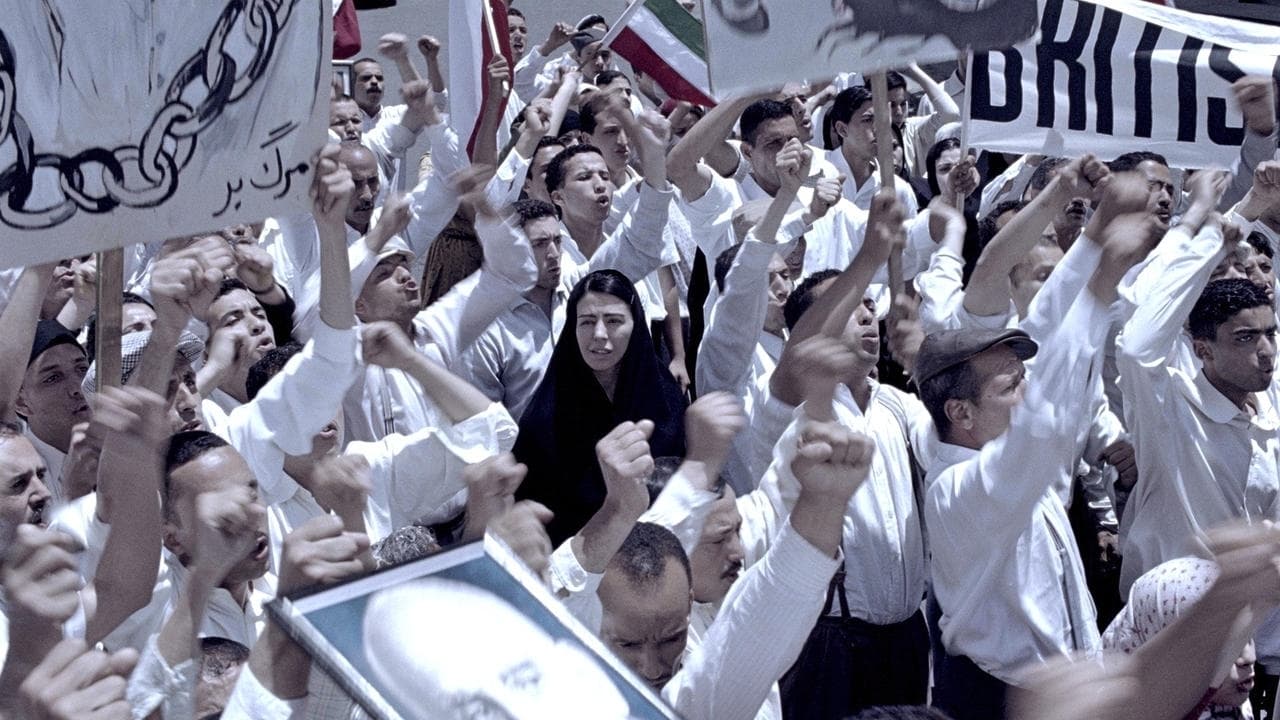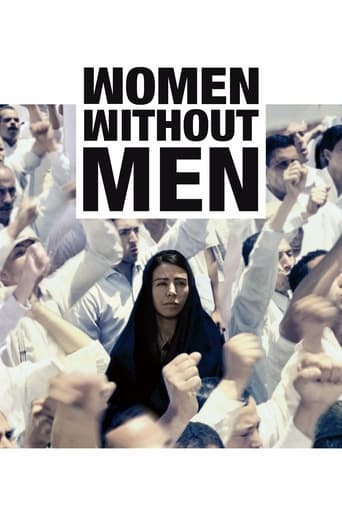

Good start, but then it gets ruined
... View MoreIt's the kind of movie you'll want to see a second time with someone who hasn't seen it yet, to remember what it was like to watch it for the first time.
... View MoreEasily the biggest piece of Right wing non sense propaganda I ever saw.
... View MoreIt's simply great fun, a winsome film and an occasionally over-the-top luxury fantasy that never flags.
... View MoreWhen I saw this movie I had planned another movie right after it. But that movie I can't even remember so had this movie entered my mind. It blew me away. The story is complex and tells the fall of the Irian democracy due the commercial interests of the west (oil companies) and their support to the Sjah. Several different story lines of woman tell the story of the time, not always in a direct way. The film is full of symbols and metaphors, some simple (like the girl who's physical state represent the state of the country) some very complex and not understandable without some knowledge of the Irianian culture. And all these stories mix and come together one way or anotherCombined with the visual aesthetics the movie feels like a dream
... View MoreMy take on the movie was more metaphoric than the reviews I've read about this movie. The lives of the characters in the movie represented different elements of Iranian society, full of contradictions where clashes and hopes live side by side. The 1953 democratic revolution was perceived differently by different elements of Iranian society. The key point of the film, as I see it, is manifested through the four women, who represented various forms of struggle within the Iranian society, and the gardener, who represented the core of Iranian culture, with a focus on creating beauty and providing hospitality to all.I see Zarin, the prostitute, portraying the victimization of Iran, which had been suffering from abuse inflicted on her by various elements that humiliate her, robbing her of her dignity with complete disregard to her pain and true desires. Zarin's soul was awakened by a visit from the gardener who offered her hope of a new start through the wind of change that was taking shape through the political awakening that was promising revolutionary changes. She runs away from the brothel and is seen in a public bath furiously rubbing her body in a symbolic way of ridding herself of her sins/victimization as a first step toward regaining her dignity. She then walked into the garden of hope where she found peace and became part of the garden to be nurtured by those victims who represent the masses of the Iranian people who found hope of a better future for Iran through the revolution. They felt strong connections to Zarin and needed her to heal in order for their hope to be realized. Zarin's silence throughout the movie reflects the absence of her voice (Iran's voice) in the political process, an effective way of portraying the country's victimization by the Shah's dictatorship, and his backers, the West.Munis, the sister, was victimized by the culture/religious restrictions (manifested through Amir, her brother) who isolated her and prevented her from participating Iran's political process, thus limiting her role in society to a mere servant. Munis' frustration led her to destroy her body in order to liberate her soul. Her spirit was finally liberated and joined the revolution by embodying one of the leaders of the revolution.Faeza, the friend of the sister, portrayed the majority of Iranian women who are traditionally and culturally compliant. She has no interest in any political changes. Her only aspiration is to live according to traditions by getting married and be a good wife. Her conscious was tested when she witnessed her friend Munis' suicide in frustration over her brother control. She imagined her friend calling on her to set her free, which she did; but while she wandered the street in pursuit of her friend's spirit, she was raped by two traditional men, causing her to lose her innocence and feel ashamed. She then became an outcast and destitute and in need of help. Munis' spirit guided her to the garden of hope where she met with the other victims (women) and together they formed a support group spirited by the revolution which they hoped would bring them rejuvenation and a better life. But in order for their aspirations to come true, the revolution, embodied by Munis, must survive. Unfortunately, the Shah, backed by the CIA, killed any hope of liberation by instigating a coup led by the Shah and the corrupt elites of Iranian society.The wife of the general represent ed the upper class/intellectuals of the Iranian society who dreamed of a meaningful and fulfilling life that would allow her to grow .The man who nurtured the garden represents the essence or foundation of Iran itself where all are welcome and hope is eternal. The magical garden the general's wife purchased is a place where hope lives and die.
... View MoreThe director Shirin Neshat has in "Zanan-e bedun-e mardan", made a visually stunning and important film, with a lot of good acting performances. Especially by Pegah Ferydoni(as Faezeh), and Arita Shahrzad (as Farrokhlagha). When you walk out of the cinema after having watched this movie, the real world will for a time seem a bit more colorless and unreal.With the military coup of the Shah of Iran in 1953 as a background, four women find out the price for freedom. And through them, the audience find out the price and value of freedom for themselves. The film also draws the historical lines between the democratic Iran of the early 1950s, and the "Green movement" of today.
... View MoreWomen Without Men is the debut feature from 'visual artist'-turned- director Shirin Neshat, well known for her artistic works exploring gender relations. It is the adaptation of the 1989 novel of the same name by Shahrnush Parsipur, which was banned by the Iranian government in the 1990s for its outspoken depiction of female oppression.Women Without Men is a tasteful, beautifully shot, well-meaning drama with some excellent performances and strong story set in a fascinating period in Iranian history. It's let down a little by its tendency to rely on clichés and convenience when it comes to character, but still an extremely enjoyable take on female independence and the intertwining lives of these four women. LB
... View More